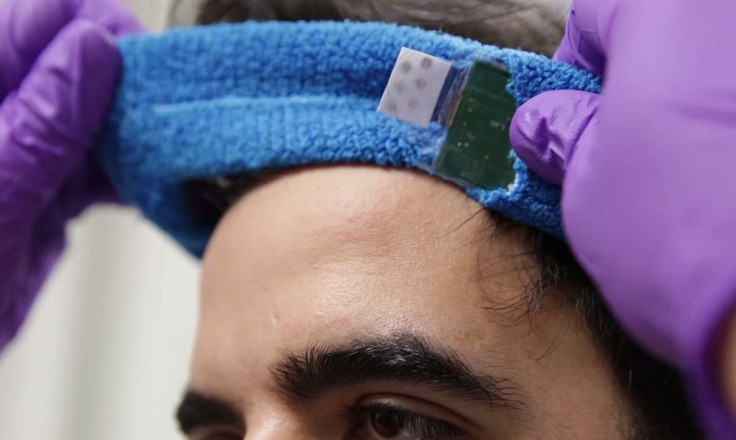New Wearable Technology Fitted To Sweatbands Helps Prevent Dehydration And Muscle Fatigue

Our sweat can say a lot about our health — and now it's possible to get that information right on our phones, thanks to new technology from the University of California, Berkeley.
Principal investigator Ali Javey, professor of electrical engineering and computer sciences at UC Berkeley, worked with doctoral fellows Wei Gao and Sam Emaminejad to develop a flexible sensor system that measures metabolites and electrolytes in sweat. The system calibrates chemicals based on skin temperature and wirelessly sends data to an app on your smartphone, all in real time. This marriage of chemistry and electrical engineering is "the big flavor" of the group's research, Javey said in an accompanying video explainer.
"The goal of this project was to develop a wearable technology that we could use to get some accurate and meaningful information about the physiological state of an individual," he said. "Sweat provides us with a wealth of information about our body condition — it consists of a wide spectrum of different chemicals."
The wearable prototype features five sweat sensors on a flexible circuit board, which can be easily fitted to sweatbands. And it focuses on concentrations of four specific chemicals in sweat: Sodium, potassium, glucose, and lactate. Concentrations of sodium and potassium can signal dehydration, while lactate can reveal muscle fatigue, Javey said.
The engineers worked closely with George Brooks, a professor of integrative biology at UC Berkeley, to fine tune the tech. They recruited 26 volunteers — four females and 22 males aged 20 to 40 — in three workout cycles either involving indoor cycling or outdoor running. As volunteers worked out, the team could see how well the sensors measured skin temperature and calibrated readings to send to the app.
"It’s the beginning of a great new realm of [biosensors]," Brooks said, "not only for personal use but for astronauts and people who need to be monitored for this-or-that condition in real time."
The "smart bands" are the first, fully integrated electronic system that can provide continuous, non-invasive monitoring of chemicals in sweat (in a long line of cutting-edge health monitors). Beyond athletic performance, Brooks noted there's a likelihood the wearables can help users better monitor other health problems, like fatigue and dangerously high body temperatures.
"I'm very excited about this work," Javey said. "This tech can be used in the future as a way of getting useful information about health in real time and it’s all done using a platform that’s on the back of [a] watch."
Source: Javey A et al. Fully-integrated wearable sensor arrays for multiplexed in-situ perspiration analysis. Nature. 2016.



























